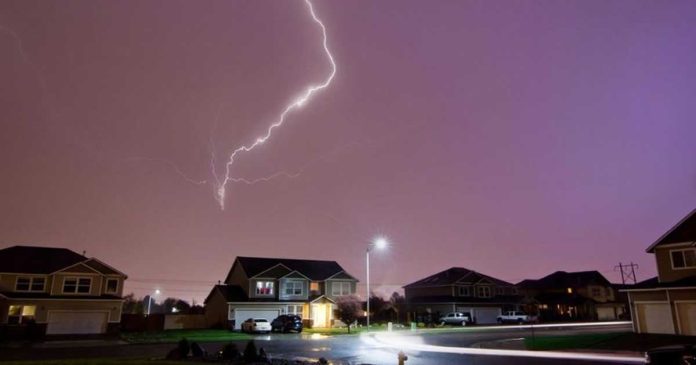Did your parents or grandparents ever tell you that it’s dangerous to bathe, shower or wash dishes during a thunderstorm? While this may sound like an old wives’ tale, they gave you this warning for a good reason. Metal plumbing pipes (like those in your sinks, showers, etc.) are all conductors of electricity. And during a storm, tap water is the pipes’ best friend.

While pure, distilled water is not a very good conductor of electricity, the ions dissolved in tap water make it a perfect conductor. “It would be dangerous to wash your hands or dishes [during a thunderstorm],” says John Jensenius, lightning safety specialist for the National Weather Service. “Just avoid those activities whenever you hear thunder. If you’re connected to … anything that plugs into the wall, which could be, for example, a dishwasher or a washing machine that’s plugged into the wall or that’s also connected to the plumbing, it becomes dangerous,” he continues.

You may be reading this thinking, “My plumbing pipes are plastic, I’m safe.” However, this is not the case. While they offer a little protection, it’s the water flowing through the pipes that can still conduct electricity. Jensenius says even puddles of water outside during a storm can electrocute someone nearby if lightning strikes the area.

Being struck by lightning is rare, but it doesn’t mean it can’t happen. If you’re outdoors when a thunderstorm hits, try to make your way indoors as quickly as possible. If you’re in the water, seek land immediately. If finding shelter indoors isn’t possible, seek low ground. Lightning strikes at the highest point, so avoid hills, elevated surfaces, and open spaces. Keep a distance from tall objects including stand-alone trees, flagpoles, telephone poles, and fences. All of these structures can act as lightning rods and increase your chances of being struck.

When you go indoors, stay away from anything connected to pipes (sinks, tubs, showers, etc.). Avoid using running water and anything connected to electrical outlets. Hold on until the storm passes, and remember that it’s always a good idea to wait at least 30 minutes after the storm ends before going back outside. Now that you know these important lightning tips, you will be better equipped to protect yourself and your family!










